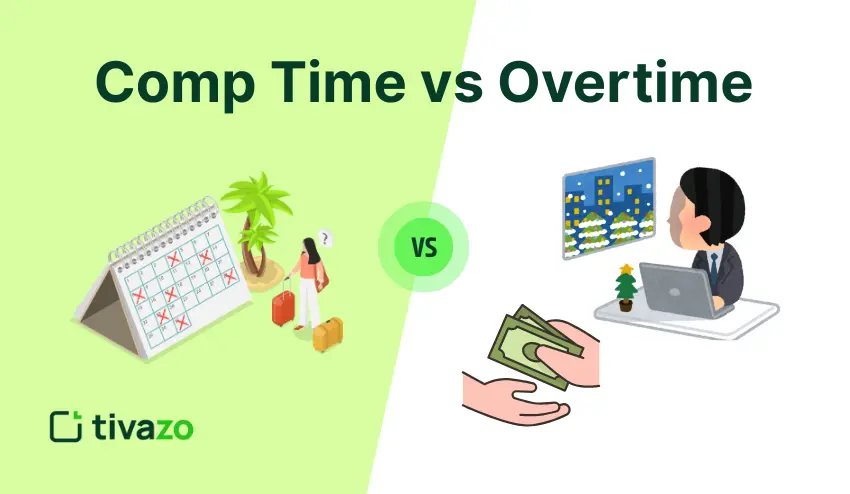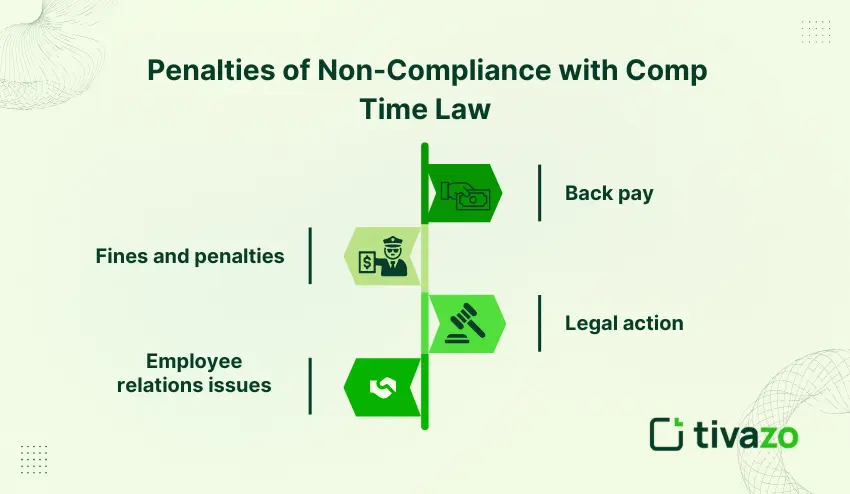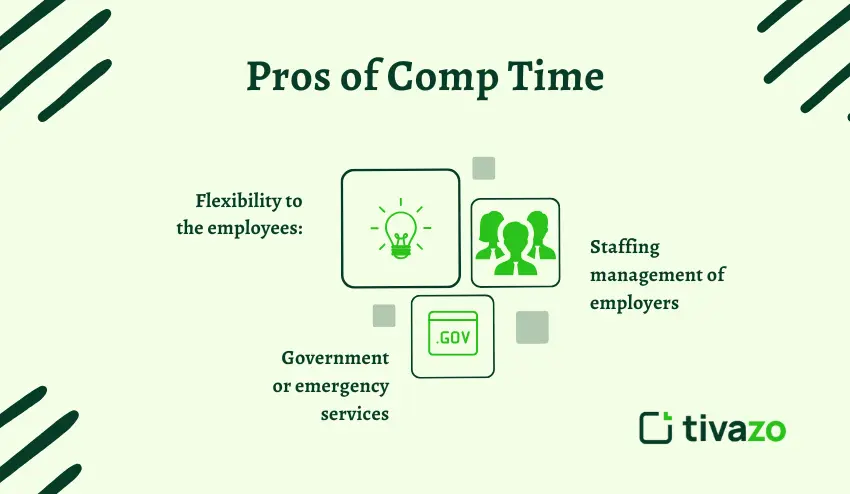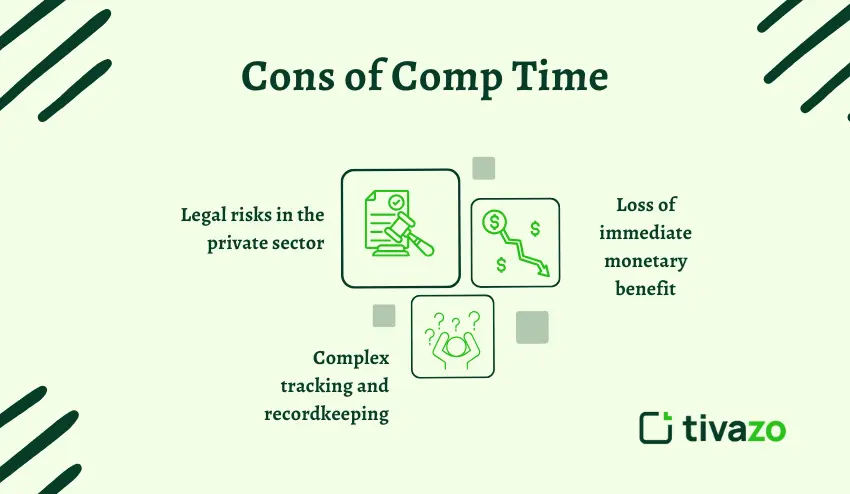Think of a long week at work and you have worked extra hours, and instead of a paycheck, you are told that you will get time off sometime in the future. That is comp time at work. It is convenient, but the laws that are behind it are complicated and not everyone can enjoy it.
It is a concept that is becoming increasingly relevant in the modern workplace. As the labor laws change, as practices differ between the public and the private sectors, and as the FLSA overtime regulations are more stringent, employees and employers need some clarity. Misinterpretation may result in unpaid wages, legal problems, or conflict at work.
This guide will explain all you need to know about comp time: what it is, how it works, its legal limits, who is eligible, and best practices of using compensatory time responsibly. At the end, you will know when it is appropriate and will know how to work with it properly.
What is Comp Time?
Compensatory time is time off awarded to workers instead of overtime compensation of hours worked outside of the normal work schedule. It is flexible for the employees and enables employers to control their staffing demands.
For example:
- An employee works 45 hours per week as opposed to the normal 40 hours.
- Instead of overtime pay, the employer gives 5 hours off which can be used in future.
The system is widespread in the public sector, where the legal framework permits compensatory time. In the private sector, private sector non-exempt employees are required to be paid overtime under the FLSA and thus comp time is not an option.
This is a way through which organizations can promote work-life balance among employees, and employees have the flexibility to attend to personal issues without experiencing a pay cut.
How Comp Time Works in Practice
It is easier to understand through real-life examples:
- In example 1, a government worker is working 10 overtime hours in a given week. Rather than being paid overtime, they are given 10 hours off the next week. This is permitted by the statutory authority of public sector employees, and has limits on the number of hours that can be accumulated.
- In example 2, a worker in the private sector puts in the same 10 additional hours. The non-exempt employees in the private sector are not entitled to receive comp time; hence, they must be compensated with overtime to cover such hours.
Regular Schedule vs. Regularly Scheduled Hours:
- Regular schedule: the normal workweek, e.g. 40 hours.
- Regularly scheduled hours: the hours an employer anticipates on a weekly basis. Comp time is only earned on hours worked in excess of these limits, so there is fair compensation.
Public vs. Private Sector:
- Public sector: Employees are allowed to accumulate comp time, but there are often limits (e.g. 240 hours as a standard employee, 480 hours as an emergency worker).
- Private sector: Comp time cannot be used instead of overtime compensation to non-exempt workers, but in the case of exempt workers, there may be informal arrangements.
Comp Time vs Overtime
It is very important to understand the distinction between comp time and overtime pay to both employees and employers.

- Overtime wages: Employees are given an additional payment on the hours they work outside the normal schedule, which is at 1.5 times their hourly pay. This gives an instant monetary incentive to additional effort. Using an overtime calculator can help.
- Compensatory time: Workers are paid in time rather than wages to work overtime. This enables one to have flexibility to take personal time at a later date but does not give one financial compensation at the moment.
Example:
An employee has a salary of 20/hour and works 10 overtime.
- Overtime compensation: 20 x 1.5 x 10 = 300 in additional compensation.
- Comp time: 10 hours of time off to be taken at a later time, no extra pay.
Key point: Overtime is not optional in FLSA overtime regulations, whereas comp time is usually restricted to governmental employees or special exceptions in exempt status.
With this distinction, employees are more able to plan their work-life balance and employers can ensure that they are in compliance of the labor laws.
Is Comp Time Legal?
The legality is based on the nature of the employee, either in the public or the private sector.
- Nonexempt employees of the private sector: These employees are covered by FLSA overtime rules and must be compensated with overtime pay in case they work more than their regular time. Comp time is not a substitute for overtime pay.
- Public sector employees: Government employees, e.g. city workers or emergency employees, may have compensatory time as a matter of statutory authority. Such regulations often have limits on the number of hours that can be accrued.
- Exempt employees: These employees are not obligated by law to be paid with comp time, but employers can give an informal agreement to facilitate employee relations or performance management.
In summary, compensatory time is legal depending on the type of employee and industry regulations, and thus employers and employees must be aware of the regulations governing their industry.
Laws and Policies Set for Comp Time
Comp time is regulated by certain labor regulations and laws, and it is important to know them both by the employer and employee.
- Fair Labor Standards Act (FLSA): This is a federal law that is the primary regulation of overtime and compensatory time. It guarantees the workers are well paid for the extra hours worked, outside the normal working schedule.
- Nonexempt employees in the private sector: These are the employees who must be paid overtime under the FLSA. Comp time may not be provided instead of overtime pay.
- Government workers: Some government workers are allowed to accumulate compensatory time in lieu of overtime compensation. The law normally limits accrual to 240 hours in regular jobs and 480 hours in emergency jobs like firefighters or police officers.
- Documentation requirements: Employers should maintain proper records of the hours worked, overtime accrued, and comp time used. Good documentation makes it compliant and easy to resolve disputes.
By adhering to these laws and policies, organizations are able to maintain workloads while safeguarding the rights of employees and evading legal sanctions, much like how a Phoenix motorcycle accident attorney helps ensure legal compliance and protection for clients navigating complex regulations
Who is Comp Time For?
The eligibility to receive comp time is dependent on the type of employee and the sector in which they work:
- Nonexempt employees: In the case of privately owned businesses, these employees are generally not allowed to receive comp time. Under the FLSA rules, they should be paid overtime pay on any hours worked in excess of their regular schedule.
- Exempt employees: These employees are not legally bound to be given compensatory time. Nevertheless, there are informal time-off arrangements provided by employers as part of performance management or employee relations programs.
- Public sector workers: A large portion of workers in the government, such as city workers and emergency service workers, are entitled to compensatory time by statutory authority. There are special regulations that restrict the number of hours that can be accumulated.
Clear policies will help avoid employee disputes and encourage good employee relations and a positive work environment.
Penalties of Non-Compliance with Comp Time Law
Giving comp time in instances where it is not legally permissible can have dire consequences on employers:

- Back pay: This requires employers to pay the employees affected by unpaid overtime with interests on delayed payment.
- Fines and penalties: Non-compliance with the regulations of FLSA may result in civil fines and other administrative penalties, depending on the extent of violation.
- Legal action: The employees will have the right to sue the employer to recover their wages. If they do, it may result in massive loss to the image of the organization.
- Employee relations issues: A lack of management of comp time or adherence with the law can potentially erode trust, morale and productivity across the entire workforce.
Pros and Cons of Compensatory Time
Pros:

- Flexibility to the employees: It allows the employee to have time off later to address personal matters or to rest, which improves work-life balance and eradicates burnout.
- Staffing management of employers: Employers can better deal with their workloads during peak periods without necessarily having to increase the amount of money spent on salaries.
- Government or emergency services: Government or emergency services also use comp time as a legally justified way of compensating overtime work without the overtime pay, to make schedules more flexible.
Cons:

- Legal risks in the private sector: The provision of comp time to non-exempt employees by the private sector is a legal risk that leads to fines, back pay or lawsuits.
- Loss of immediate monetary benefit: Workers who forego overtime in favor of comp time will be denied immediate monetary benefit on the additional hours worked.
- Complex tracking and recordkeeping: Employers must maintain a detailed record of the accrued and used time, which is administratively cumbersome and susceptible to error.
Based on the pros and cons, both employers and employees will be in a position to determine whether it is a viable and legally acceptable alternative.
Best Practices: Employers & Employees
For Employers:
- Follow the FLSA rules: Ensure that practices are legal.
- Write it down: Record overtime and vacation.
- Communicate policies: Make sure the employees know eligibility and limits.
- Accrual limit: Set legal limits on accrued comp time.
For Employees:
- Be knowledgeable of your rights: Study the FLSA rules and the company policy.
- Keep a record: Keep your own records of overtime and sick days. Using time tracking software can help lot.
- Ask HR: Determine whether you can be provided with comp time instead of overtime, in case it is provided.
- Keep records: Keep a record of hours worked and time taken to avoid disputes.
Conclusion
Comp time can be a valuable means of flexibility, but it is strictly regulated. Non-exempt employees in the private sector have the right to overtime compensation, whereas in the public sector, employees can accrue compensatory time with a set of strict rules. Employers have to act in accordance with the law, and the employees should know their rights. Compensatory time when applied properly promotes work-life balance and workforce management.




